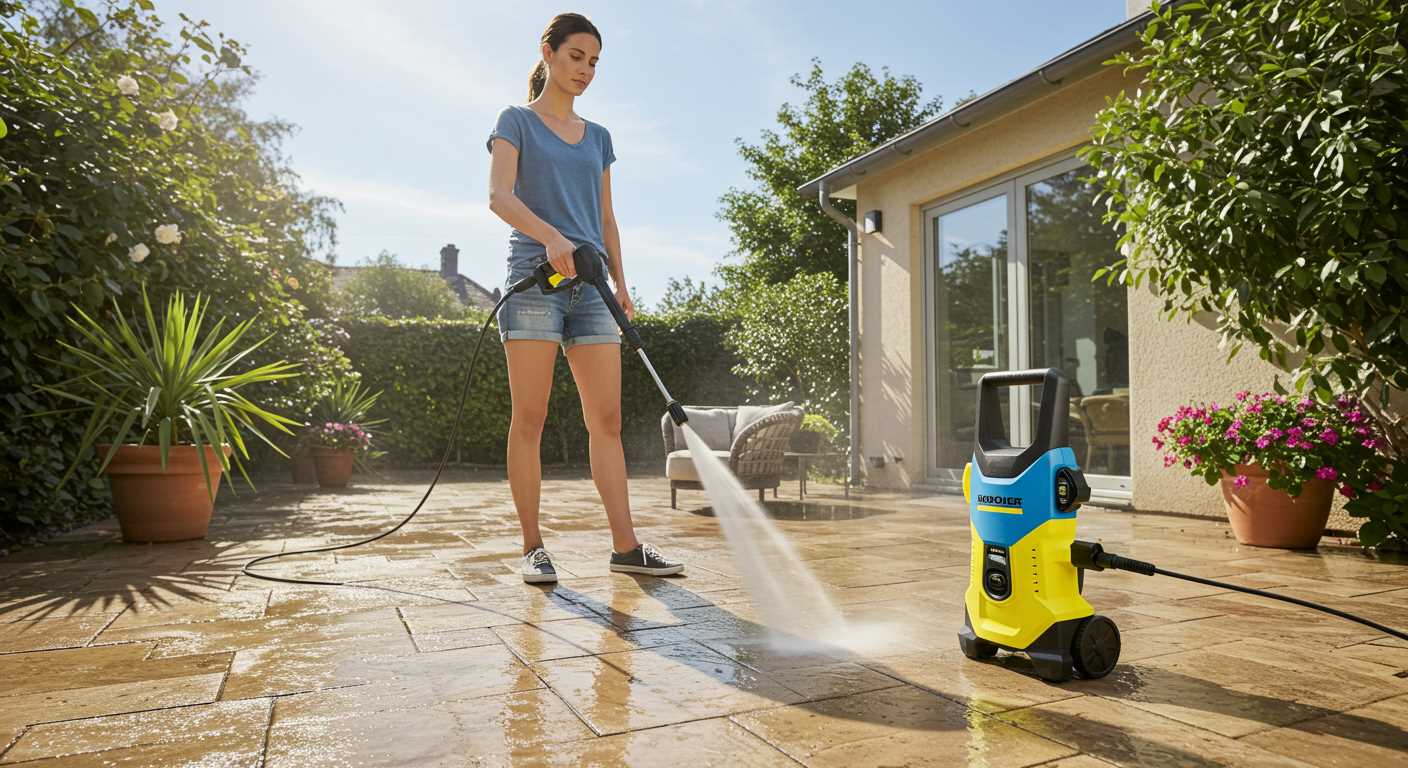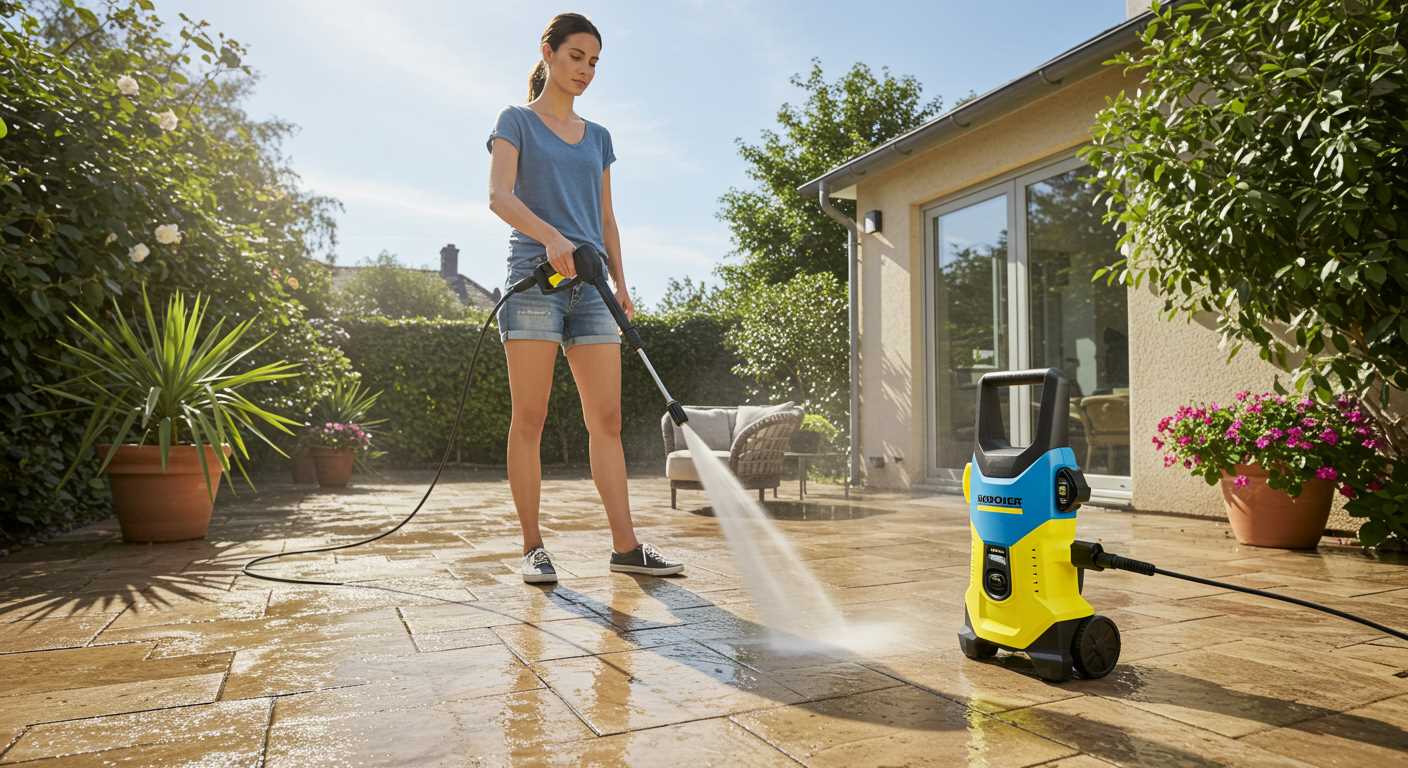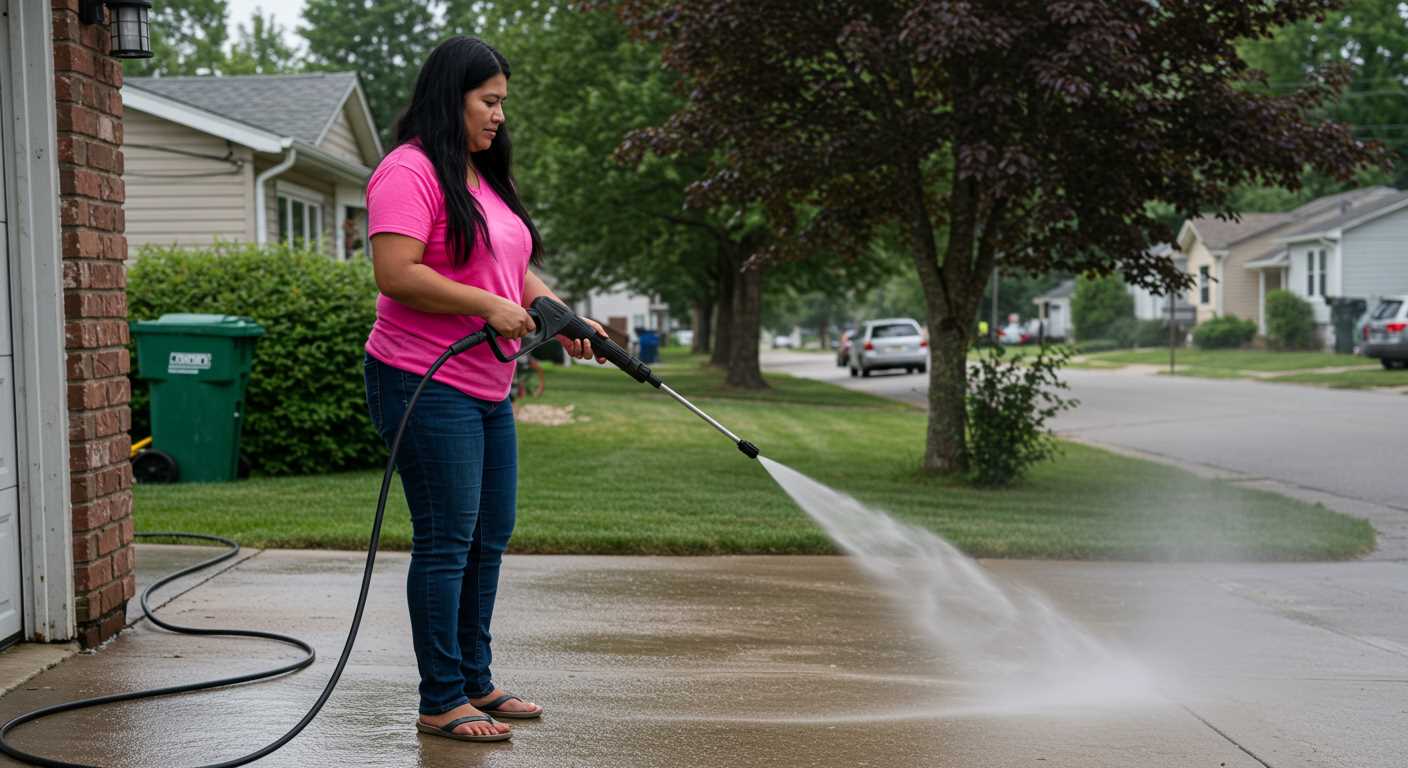


When it comes to maintaining a beautiful garden and a well-kept outdoor space, the right tools can make all the difference. One of the most essential tools you’ll need is a pressure washer, but not just any nozzle will do. In this article, I’ll delve into the best pressure washer nozzles specifically designed for use with garden hoses, helping you choose the perfect one for your needs.
This guide is particularly useful for homeowners, gardening enthusiasts, and anyone looking to enhance their outdoor cleaning efficiency. Whether you’re tackling stubborn dirt on patio furniture, cleaning driveways, or washing your car, the right nozzle can transform your pressure washing experience.
I’ll cover the various types of nozzles available, their respective uses, and what to consider when selecting the best one for your pressure washer and garden hose setup. By the end of this article, you’ll have a clear understanding of how to choose the ideal nozzle to maximise your cleaning power while ensuring the safety of your plants and surfaces.
Understanding the Types of Nozzles Available
When it comes to pressure washers, the nozzle plays a crucial role in determining the effectiveness of the cleaning process. Different types of nozzles are designed to produce varying spray patterns and pressure, making them suitable for various tasks around the garden and home. Understanding these types is essential for maximising the performance of your pressure washer and ensuring optimal results.
Generally, nozzles can be categorised based on the angle of the spray and the type of flow they produce. Each nozzle type serves a distinct purpose, allowing users to tackle different cleaning challenges efficiently.
Types of Nozzles
- Zero-Degree Nozzle: This nozzle produces a concentrated, narrow spray, ideal for tough stains and heavy-duty cleaning. However, caution is needed as it can damage delicate surfaces.
- 15-Degree Nozzle: Slightly wider than the zero-degree, this nozzle is effective for removing paint, grease, and grime from hard surfaces without causing damage.
- 25-Degree Nozzle: This is a versatile option suitable for most cleaning tasks, including driveways and patios, providing a balance between pressure and coverage.
- 40-Degree Nozzle: With a broader spray pattern, this nozzle is perfect for washing vehicles and delicate surfaces, ensuring a gentle clean.
- Soap Nozzle: Specifically designed for applying detergents, this nozzle has a wider spray pattern and lower pressure, allowing for effective soap application during cleaning.
Each of these nozzle types offers distinct advantages and is suited for particular cleaning tasks, making it essential to choose the right one based on the surface and the level of grime. Understanding these options will help ensure that your pressure washer performs at its best, delivering the desired results.
How Nozzle Size Affects Water Pressure
The size of a pressure washer nozzle plays a crucial role in determining the water pressure that is delivered to the surface being cleaned. Different nozzle sizes can create varying spray patterns and water flow rates, which ultimately impacts the effectiveness of the cleaning process. Understanding how nozzle size affects water pressure can help users make informed choices for their cleaning tasks.
When water flows through a nozzle, its diameter influences both the velocity and pressure of the water stream. A smaller nozzle opening increases the speed of the water, which can enhance the pressure and make it more effective for penetrating dirt and grime. Conversely, a larger nozzle allows for a broader spray and a gentler approach, which may be suitable for more delicate surfaces.
Effects of Nozzle Size on Pressure
Several factors are influenced by the size of the nozzle:
- Water Velocity: Smaller nozzles create a higher velocity, resulting in increased pressure, making them ideal for tough stains.
- Spray Pattern: Larger nozzles produce a wider spray pattern, distributing the water over a larger area, which can reduce pressure but is gentler on surfaces.
- Cleaning Efficiency: The right nozzle size enhances cleaning efficiency, allowing for effective removal of dirt without causing damage.
- Flow Rate: Affects how much water is used; smaller nozzles typically use less water but require more time to clean larger areas.
In summary, selecting the appropriate nozzle size is essential for achieving optimal water pressure and cleaning results. Users should consider the specific cleaning task at hand and choose a nozzle that balances pressure and coverage for the best overall performance.
Choosing the Right Nozzle for Different Cleaning Tasks
When it comes to using a pressure washer with a garden hose, selecting the appropriate nozzle is crucial for achieving effective cleaning results. Different tasks require different approaches, and the right nozzle can make all the difference in both efficiency and safety. Understanding the various nozzle types and their specific applications will help you tackle any cleaning job with confidence.
Pressure washer nozzles typically come in various shapes and sizes, each designed for specific tasks. By selecting the right nozzle, you can ensure that you are using the correct pressure and spray pattern for the job at hand, minimising the risk of damage to surfaces while maximising cleaning efficiency.
Understanding Nozzle Types
- Zero-degree nozzles: These produce a concentrated jet of water, ideal for tough stains on hard surfaces like concrete or brick. However, caution is needed to avoid damage.
- 15-degree nozzles: Great for stripping paint or removing heavy dirt from surfaces, they provide a wider spray pattern while still maintaining a strong force.
- 25-degree nozzles: Suitable for general cleaning tasks, such as washing cars, decks, and driveways. They offer a balance between power and coverage.
- 40-degree nozzles: Best for delicate surfaces, such as windows or siding, providing a gentle spray that minimises the risk of damage.
In addition to angle-based nozzles, there are also adjustable nozzles that allow for quick changes in spray pattern without the need to swap out attachments. This versatility can be particularly useful when moving between different cleaning tasks.
Ultimately, the key to effective cleaning is to match the nozzle to the specific task at hand. Not only does this enhance cleaning performance, but it also protects your surfaces and prolongs the life of your pressure washer. By understanding the various nozzle options available, you can optimise your cleaning routine and achieve professional results with your garden hose setup.
Compatibility Between Garden Hoses and Pressure Washer Nozzles
When considering the use of pressure washer nozzles with garden hoses, compatibility is a crucial aspect that can significantly affect performance. Not all nozzles are designed to fit every type of garden hose, so understanding the specifications is essential for achieving optimal results. A mismatched connection can lead to leaks, reduced pressure, or even damage to both the nozzle and the hose.
It is important to note that garden hoses come in various diameters, and this factor directly influences the type of nozzle that can be used. Typically, garden hoses are available in 1/2 inch and 5/8 inch sizes, and selecting a pressure washer nozzle that fits snugly to these dimensions ensures a proper seal and effective water flow.
Key Considerations for Compatibility
- Diameter: Ensure the nozzle’s inlet matches the hose diameter for a secure fit.
- Thread Type: Check if the hose and nozzle have compatible threading (e.g., male or female threads).
- Pressure Rating: Verify that the nozzle can handle the pressure generated by the pressure washer to avoid damage.
- Material Compatibility: Consider the materials used in both the hose and nozzle to prevent chemical reactions that could degrade their integrity.
By addressing these compatibility factors, users can enjoy a more effective cleaning experience with their garden hoses and pressure washer nozzles. Ensuring that both components work harmoniously together not only enhances cleaning efficiency but also prolongs the lifespan of the equipment.
Factors to Consider When Selecting a Nozzle Material
Choosing the right nozzle material for a garden hose is crucial for ensuring durability and efficiency. The material impacts not only the performance of the nozzle but also its longevity and resistance to wear and tear. Understanding the different materials available can help in making an informed decision that aligns with specific cleaning needs.
The most common materials used for nozzles include plastic, brass, and stainless steel. Each has its own set of advantages and disadvantages that should be considered based on the intended use and frequency of use.
Material Characteristics
Plastic: Lightweight and often more affordable, plastic nozzles are suitable for light-duty tasks. However, they may not withstand high pressure or rough handling, leading to potential breakage over time.
Brass: Known for its durability, brass nozzles resist corrosion and can handle higher pressures, making them ideal for more intensive cleaning tasks. They are heavier than plastic options but offer better longevity.
Stainless Steel: Offering the highest level of durability, stainless steel nozzles are resistant to rust and corrosion. They are suitable for heavy-duty applications but come at a higher price point.
When selecting a nozzle material, consider the following factors:
- Frequency of Use: Determine how often the nozzle will be used, as this can influence the choice of material.
- Type of Cleaning Tasks: Assess the nature of the tasks, whether they require high pressure or delicate handling.
- Budget: Factor in the cost, as more durable materials typically come with a higher price tag.
- Weight: Consider the ease of handling, especially for prolonged use.
Ultimately, selecting the appropriate nozzle material will enhance the overall experience and effectiveness of using a garden hose for various cleaning tasks.
Comparative Analysis of Nozzle Spray Patterns
When selecting the right nozzle for a garden hose, understanding the various spray patterns is crucial for achieving optimal results. Different nozzle designs offer unique spray patterns that can enhance cleaning efficiency and precision. This analysis will explore the common types of spray patterns and their applications, helping users make informed decisions based on their gardening and cleaning needs.
The primary spray patterns typically include fan, cone, and jet. Each pattern serves a distinct purpose, catering to different tasks, from watering delicate plants to tackling tough stains on outdoor surfaces.
Types of Spray Patterns
Here’s a breakdown of the most common spray patterns:
- Fan Spray: This pattern provides a wide, even distribution of water, making it ideal for watering large areas like lawns and flower beds. It reduces the risk of over-saturation in specific spots.
- Cone Spray: With a more focused, conical distribution, this pattern is perfect for targeted watering. It allows for precise application, which is beneficial for delicate plants that require careful moisture management.
- Jet Spray: This pattern delivers a powerful, concentrated stream of water, ideal for cleaning hard-to-reach areas or removing stubborn dirt and grime from surfaces.
Choosing the appropriate spray pattern can significantly impact the effectiveness of watering and cleaning tasks. For instance, the fan spray is less efficient for heavy-duty cleaning, while the jet spray may cause damage to fragile plants if used excessively. Understanding these nuances ensures that users can select the best nozzle spray pattern for their specific gardening or cleaning requirements.
Maintenance Tips for Prolonging Nozzle Lifespan
Proper maintenance of your pressure washer nozzle is essential for ensuring its longevity and optimal performance. A well-maintained nozzle not only functions more effectively but also saves you money in the long run by reducing the need for replacements. Here are some practical tips to help you take care of your nozzle.
First and foremost, regular cleaning is vital. After each use, make sure to rinse your nozzle thoroughly to remove any dirt, debris, or soap residue. Neglecting this step can lead to clogging and decreased efficiency over time.
- Inspect Regularly: Check your nozzle for signs of wear and tear or damage before each use.
- Use the Right Pressure: Avoid using excessive pressure which can cause damage to the nozzle’s internal components.
- Store Properly: Keep your nozzle in a dry, protected place to prevent corrosion and physical damage.
- Replace O-rings: Regularly inspect and replace O-rings to prevent leaks and maintain optimal performance.
- Avoid Chemical Damage: Limit the use of harsh chemicals that may corrode the nozzle material.
By following these maintenance tips, you can significantly extend the lifespan of your pressure washer nozzle. A little care goes a long way in ensuring that your equipment remains efficient and effective for all your cleaning tasks.
Top 10 Best Pressure Washer Nozzle For Garden Hose



Best Pressure Washer Nozzle For Garden Hose
Features
| Part Number | RY31RN01 |
| Model | #RY31RN01 |
| Color | Green |
Features
| Part Number | G5300 |
| Model | G5300 |
| Color | Sliver |
| Size | 75' |
Video:
FAQ:
What are the best types of nozzles for a garden hose pressure washer?
The best types of nozzles for a garden hose pressure washer typically include adjustable nozzles, which allow you to change the spray pattern easily, and fan nozzles, which provide a wider spray for larger areas. There are also turbo nozzles that combine the power of a rotating jet with a wider spray. Each type serves a different purpose, such as cleaning delicate surfaces or tackling tough grime, so the choice depends on the specific tasks you have in mind.
How do I choose the right pressure washer nozzle for my needs?
Choosing the right pressure washer nozzle involves considering the surface you plan to clean and the level of dirt or stains present. For light cleaning, a wide fan nozzle (25 to 40 degrees) is suitable, while a narrower angle (0 to 15 degrees) is better for tougher stains. Additionally, if you’re working on fragile surfaces, an adjustable nozzle will allow you to control the pressure more effectively. Assessing the material and condition of the surface will help you make a more informed decision.
Can I use any nozzle with my garden hose pressure washer?
No, not all nozzles are compatible with every garden hose pressure washer. It is important to check the specifications of your pressure washer to ensure that the nozzle fits properly and can handle the pressure output. Using an incompatible nozzle can lead to inefficiency or even damage to the machine. Always refer to the manufacturer’s guidelines for recommended nozzle types and sizes.
What maintenance do pressure washer nozzles require?
Pressure washer nozzles require minimal maintenance, but it is essential to keep them clean to ensure optimal performance. After each use, rinse the nozzles to remove any debris or residue that may clog them. Periodically check for wear and tear, especially on the orifice. If you notice significant damage or a change in spray pattern, it may be time to replace the nozzle. Proper care will prolong the life of your nozzles and maintain their efficiency.




.jpg)


